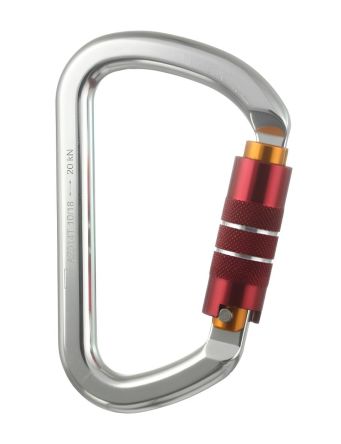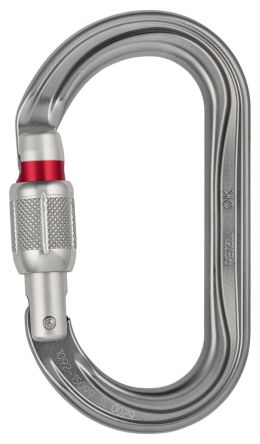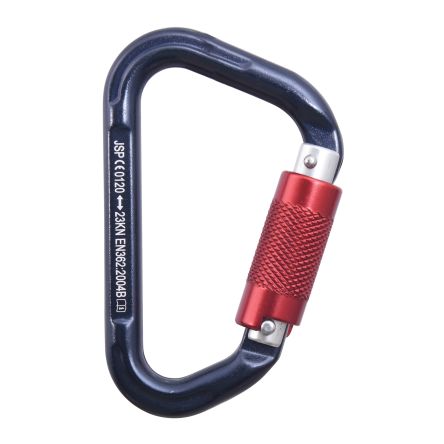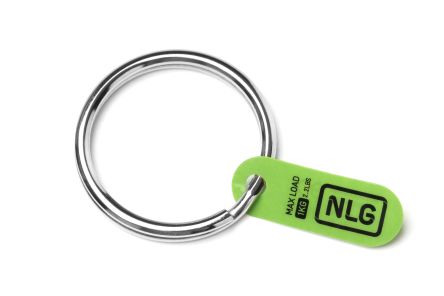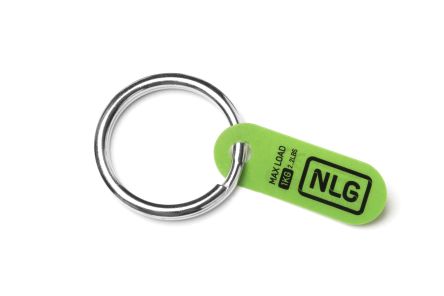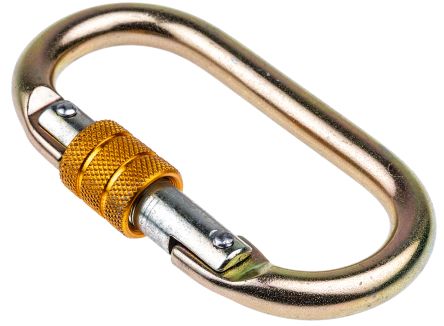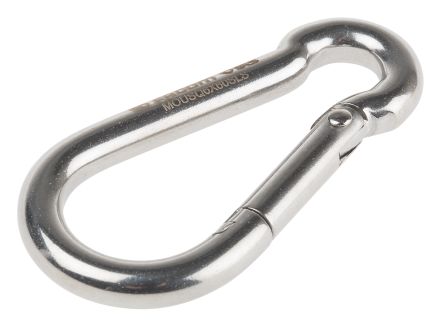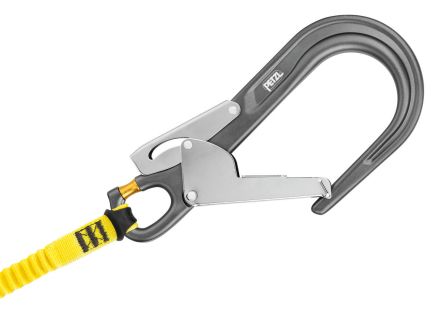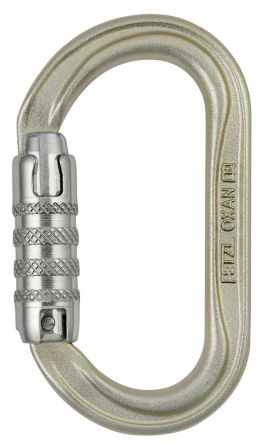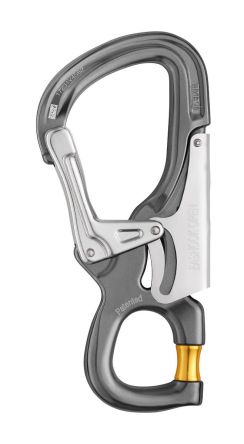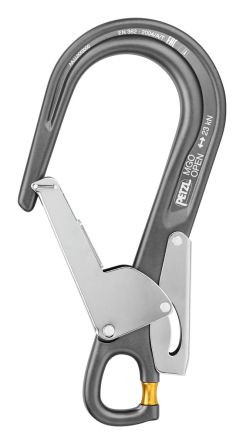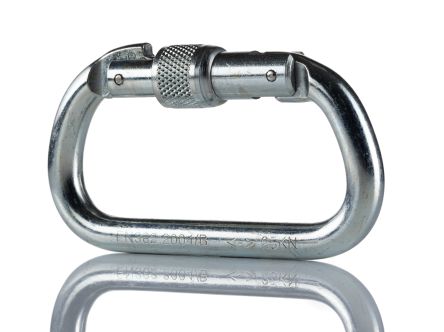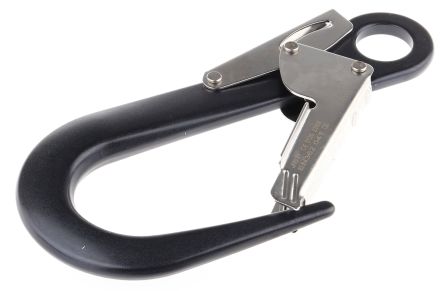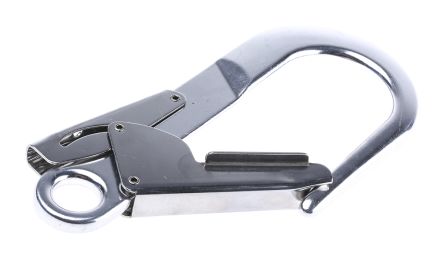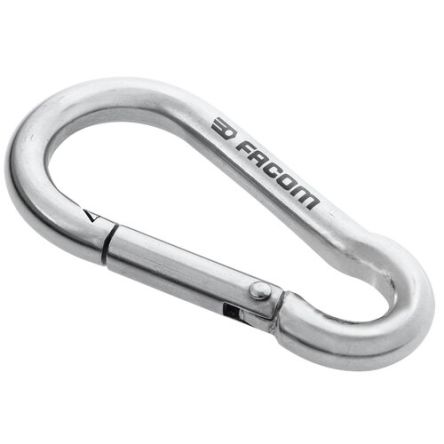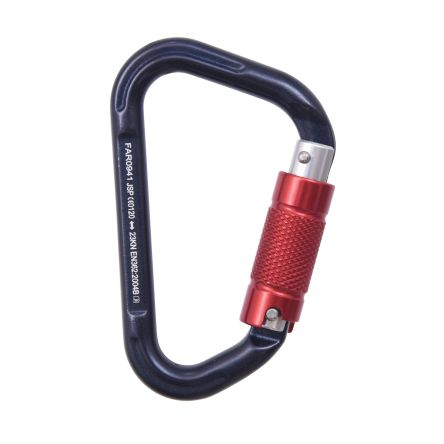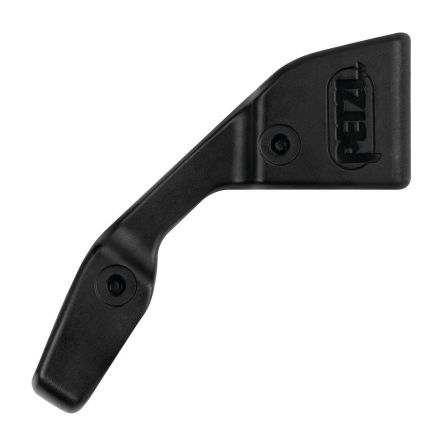- Automation & Control Gear
- Cables & Wires
- Enclosures & Server Racks
- Fuses & Circuit Breakers
- HVAC, Fans & Thermal Management
- Lighting
- Relays & Signal Conditioning
- Switches
- Batteries & Chargers
- Connectors
- Displays & Optoelectronics
- ESD Control, Cleanroom & PCB Prototyping
- Passive Components
- Power Supplies & Transformers
- Raspberry Pi, Arduino, ROCK, STEM Education & Development Tools
- Semiconductors
Safety Carabiners
Safety carabiners are an essential piece of PPE equipment when working at heights or in hazardous situations, workers can sometimes drop their tools, potentially causing serious injury to workers below as well as reducing on-the-job working time. A safety carabiner is also known as a karabiner.
Originally, the carabiner was used in certain situations or sports activities where ropes were involved, such as rock climbing, sailing and mountaineering, however carabiners are now widely used by many individuals and in different industries such as construction, roofing, maintenance, telecommunications and general industry.
A carabiner is made from a variety of materials such as aluminium, steel, nylon, stainless steel, polyester and plastic. It is available in different sizes, depending upon your requirements. It has a spring-loaded clip or a screw lock which you can easily attach to your tools.
Types of Carabiners
There are various types of carabiners, the most distinguishing difference being the shape and design, each one operates a little differently. Oval are most basic and allow the transfer of equal weight. D asymmetric shape also known as an offset D are the strongest and most durable and allow the weight to be transferred to the spine of the carabiner, these are the ones most climbers use for climbing activities. A D-shaped carabiner allows for a wider gate opening, which makes clipping them easier. A pear shaped, also known as HMS type are the easiest to use, as the gate on these HMS types can open wider than other carabiners, sometimes HMS will be marked on the carabiner to make them easily identifiable.
There are also different locking mechanisms on carabiners, some are auto-locking or self-locking which lock when the gate is closed and others are manual locking, known as a screw-lock or screw-gate, where the user is required to screw the sleeve into the gate to lock it. Non-locking carabiners have a sprung gate that will snap back into place once opened. Also available is a DMM carabiner which is a double locking carabiner.
